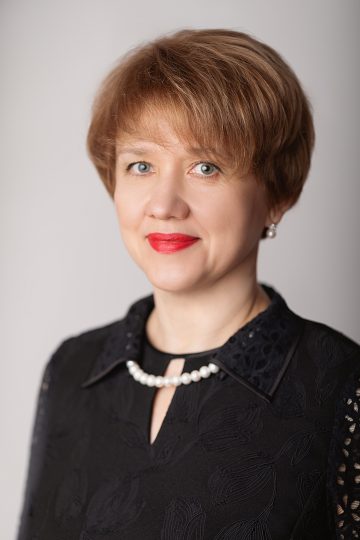Study of religion in the schools of contemporary Russia

Olga Pigoreva,
Doctor of Historical Sciences, Professor,
Department of Economics, Management and Humanities, Kursk State Agricultural Academy,
Kursk, Russia
Modern processes of globalization, spread of extremism under religious slogans, migration growth of population, which often has a destructive effect on the cultural code of the “host” side, indicate the strengthening of the religious factor in the world. Russia, having experienced a period of religious persecution in the twentieth century, found itself in a situation of religious ignorance of the majority of citizens under the conditions of a new state policy. For Russian education, the problem of studying religion was complicated by the loss of teaching traditions and the lack of staff.
Turning of the Russian school to the use of knowledge in religion for educational work with children happened at the turn of the 1980s and 1990s. In 1988 the wide celebration of 1000th anniversary of the Conversion of Russia in the Soviet Union at the state level caused the growth of interest to religion, so society began to feel the need for its study. Religious values became a moral imperative for many citizens, as in society under the influence of the policy of perestroika the ideals familiar to Soviet people were destroyed. The adoption in 1990 of the Law of the USSR “On Freedom of Conscience and Religious Organizations” guaranteed religious freedom and the opportunity for religious organizations to teach religion optionally, at the request of parents.
The study of religion in Russian schools started at the turn of the 1980s and 1990s through the integration of knowledge connected with the history and culture of religions into humanities, extracurricular work, teaching electives on the history and culture of Christianity and Islam in certain areas.
A special role in the formation of religion study belonged to school teachers. Knowledge of religion, perceived as a part of universal values, ” fitted “into the new paradigm of education as a “humanistic” component, and obtaining creative freedom, the opportunity to build education in the humanitarian direction by teachers contributed to the development of pedagogical initiative.
However, the educational system did not have legally issued documents defining the nature of the study of religion; there were no programs and textbooks. Nevertheless, despite the difficulties, the regional practice of studying religion gradually expanded. The society saw in religion an opportunity to return to its origins and a huge potential for the revival of a centuries-old cultural layer which had been lost in the Soviet years. The practice of studying Orthodox culture became common for the regions of Central Russia, where Orthodoxy is the traditional religion of the majority of residents. So, in 1997, the course “Fundamentals of Orthodox Culture” was introduced in the schools of the Kursk region. Study of Orthodox culture became widespread in the schools of the Smolensk, Belgorod, and Yaroslavl regions. The legal basis of teaching was regulated by regional documents.
The expansion of the practice of studying religion and at the same time the growth of discussions in society concerning the possibility and legality of such kind of work required to solve the problem at the state level. In July 2009, President of the Russian Federation D. A. Medvedev hold a meeting with the leaders of the country’s leading religious denominations, where they decided to conduct an experiment to test a new training course “Fundamentals of Religious Cultures and Secular Ethics” in a number of Russian regions within which parents (their representatives) of schoolchildren were asked to choose one of the training modules for studying: “Fundamentals of Secular Ethics”, “Fundamentals of World Religious Cultures”,” Fundamentals of Orthodox Culture”,” Fundamentals of Muslim Culture”,” Fundamentals of Jewish Culture”, “Fundamentals of Buddhist Culture”.
The positive results of the experiment made it possible to start teaching a new subject in all Russian schools from September 1, 2012. Teaching was organized in the 4th grades, one lesson a week, which assisted to stabilize approaches to the content of religious studies in schools, allowed us to get away from the diversity of practices formed in the regions. At the federal level, the problem of the program and methodological support, teachers’ training was solved. However, some difficulties still exist, including the restriction on studying the history and culture of religions for one academic year, the age of students.
Nevertheless, many Russian regions, after the introduction of a comprehensive training course “Fundamentals of Religious Cultures and Secular Ethics” in all fourth grades, have not abandoned the practice of teaching courses on the history and culture of religions which was formed in previous years during other grades, mainly in 5-9th ones.
Email: ovpigoreva@yandex.ru
Expert article 3009
> Back to Baltic Rim Economies 4/2021
To receive the Baltic Rim Economies review free of charge, you may register to the mailing list.
The review is published 4-6 times a year.
